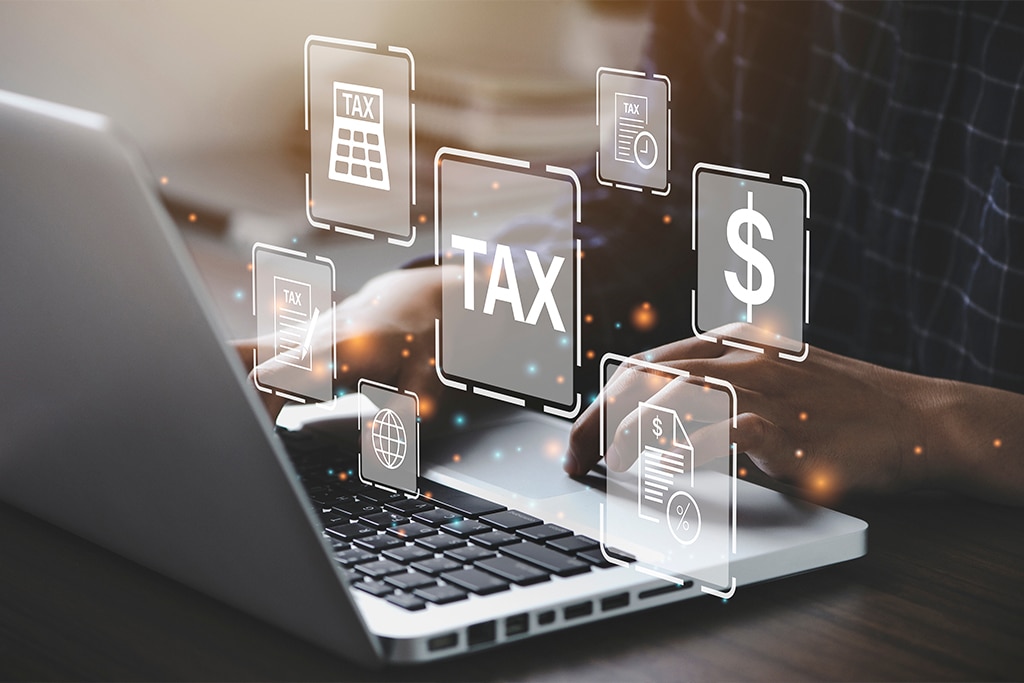
Getting into Collectibles Investing
September 7, 2023
2023 Tax Return Deadlines
October 12, 2023Artificial intelligence (AI) is reshaping the world of personal investing. No longer a tool reserved for the big end of town, AI in Investing can lend its analytical capabilities to consumers where the AI algorithms are asked to sift through vast datasets, offer insights and predictions, and provide automated strategies.
Consumers are beginning to harness AI as both a decision-making tool and an educational ally in their investment journey. Individuals are leaning on AI-driven platforms to explain complex financial concepts, analyse market trends, and even simulate investment scenarios. Whether through AI-curated learning paths, interactive chatbots that break down investment jargon, or predictive models that showcase potential outcomes, modern investors are using technology to improve their financial literacy.
Despite AI’s appeal in streamlining investment strategies, it’s not without its challenges. Relying solely on AI can sometimes lead to a false sense of security; algorithms are built on past data to make predictions, meaning unprecedented events or “black swans” can throw its models off. Additionally, if there’s bias in the input data, the AI system can perpetuate or even exacerbate those biases, leading to skewed investment advice. There’s also the risk of data privacy breaches, where personal financial information could be exposed if you use public or 3rd party AI tools. Not to mention, AI lacks the human touch—a nuanced understanding of socio-economic contexts, or it might not account for sudden world events, corporate scandals, or political contexts, leading to inaccurate forecasts.
As consumers integrate AI tools into their investment approaches, it’s imperative to strike a balance, pairing technological insights with human intuition and staying informed about the potential pitfalls in this rapidly evolving landscape.
Examples of how investors are using AI
AI for the Stock Market
AI is changing trading patterns in the stock market. For instance, algorithmic trading, where AI analyses historical data to make timely buy or sell decisions. Investors are using these ‘robo-advisors’ to offer automated portfolio management and take the guesswork out of financial planning. Stock market investors are also using predictive analysis, where AI forecasts potential stock movements by churning through mountains of data. While these AI-backed methods have many benefits, like efficiency and data-driven decision-making, they’re not without risks. AI’s reliance on past data means it might miss the mark during unforeseen market upheavals, and the absence of human intuition and ability to understand context could imply overlooked nuances.
AI for Cryptocurrency Trading
As digital coins and tokens continue to capture investor attention, AI-powered crypto wallets are emerging as asset management tools, offering enhanced usability and security recommendations. The use of trading bots, equipped with machine learning models, can handle the 24/7 cadence of the crypto world, executing trades based on a set of predefined rules. Beyond trading, AI-driven predictive analysis is trying to predict the volatility of crypto markets, forecasting potential price shifts. And with the surge in crypto’s popularity, the risk of foul play rises. Enter AI’s role in fraud detection, spotting unusual patterns and keeping dubious activities at bay. However, while the benefits are exciting, there are inherent risks. AI models can misjudge crypto’s unpredictable swings, and an over-reliance on automated systems could mean sidestepping the human intuition that often proves invaluable.
AI for Real Estate
At the heart of property investing lies the crucial question of value, so investors can use AI to estimate property values by diving deep into historical data and market trends. Property AI tools can be used to sift through vast amounts of data to spotlight potentially lucrative investment opportunities and provide more personalised property recommendations. However, while the benefits of AI in real estate are clear – from informed decisions to convenience – there are pitfalls to watch out for. AI’s valuations, for instance, are based on past data and might not always understand nuances or rapidly changing local factors affecting property values.
AI for Collectibles and Art
A prominent application is price prediction; AI dives deep into historical pricing data, forecasting the potential future value of coveted pieces, whether a vintage comic book or a contemporary sculpture. Take, for instance, an ancient artifact whose past auction prices can be analysed to gauge its future market trajectory. Beyond pricing, authenticity is the cornerstone of the art and collectibles realm. AI tools play a pivotal role here, meticulously scrutinising artworks to verify their genuineness, ensuring that that priceless painting is not a clever forgery. Furthermore, determining the exact value of an artwork or a collectible item is now more science than guesswork, with AI-driven valuation tools offering insights grounded in data and patterns. However, while the allure of AI in this sector is strong, it’s not without its challenges. Art, with its subjective nature, means that AI’s data-centric approach might sometimes overlook the intangible sentiments or historical contexts that drive human appreciation and valuation. As with many sectors touched by AI, while the technology is a boon, a discerning human touch remains indispensable in the world of art and collectibles. To find out more about investing in collectibles, read our article getting into collectibles.
AI for Savings and Retirement Planning
Consumers are looking at AI’s capabilities to help with their financial strategies when it comes to savings and retirement planning. Through AI-powered platforms, individuals can gain a comprehensive view of their financial health, enabling them to consider savings strategies tailored to their unique situations. For example, a person could use an AI-driven platform to balance daily expenses, savings, and investments for a long-term vision. When planning for retirement, specific robo-advisors have emerged to focus solely on managing and optimising retirement accounts. These platforms harness AI to ensure consumers are on the best possible path to a comfortable retirement, adjusting investment strategies based on market conditions and individual retirement goals. The benefits are compelling, with AI offering efficiency, personalisation, and data-driven decision-making. However, as with any automated system, while AI simplifies and offers informed perspectives, the nuances of personal financial preferences and risk appetites mean human judgment remains a valuable companion in the journey toward financial security.
As personal investing evolves, we will begin to see AI tools and uses become increasingly prominent. This technology introduces various tools and platforms designed to aid the investment process. It’s essential, though, to approach these innovations with a balanced perspective. On one hand, AI offers insights that can be instrumental in decision-making; on the other, independent research and occasional human expertise remain vital to cross-checking and validating these insights. Data privacy is another key consideration; understanding how platforms manage and safeguard your information is essential. Ultimately, the integration of AI in the investment domain has the potential to make the process more approachable and user-friendly. Still, its impact will largely depend on how individuals choose to use it.







